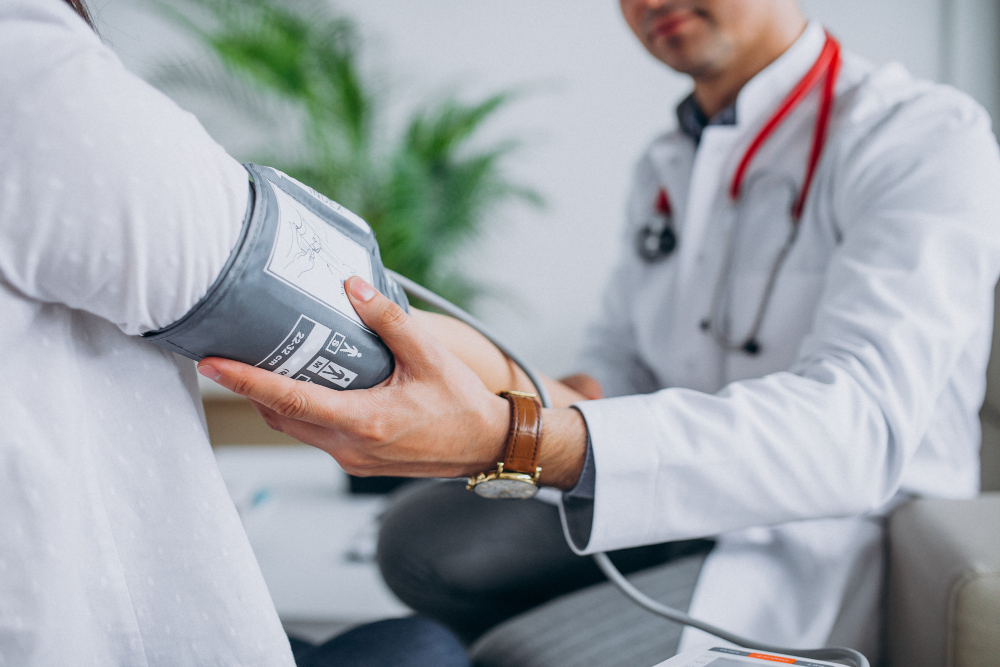Hypertension

Understanding Hypertension
Hypertension, commonly known as high blood pressure, is a chronic medical condition characterized by elevated blood pressure levels persistently exceeding normal ranges. It is a significant risk factor for various cardiovascular diseases, including heart attack, stroke, heart failure, and kidney disease.
Types and Causes
Hypertension can be classified into two main types:
Primary (Essential) Hypertension: Primary hypertension accounts for the majority of cases and develops gradually over time with no identifiable cause. Contributing factors may include genetics, lifestyle choices (such as diet, physical activity, and smoking), stress, and aging.
Secondary Hypertension: Secondary hypertension is less common and occurs as a result of an underlying medical condition or medication. Causes may include kidney disease, hormonal disorders (such as hyperthyroidism or Cushing’s syndrome), obstructive sleep apnea, certain medications (e.g., nonsteroidal anti-inflammatory drugs, oral contraceptives), and illicit drug use.
Symptoms and Diagnosis
Hypertension is often referred to as a “silent killer” because it typically does not cause noticeable symptoms until complications arise. However, some individuals may experience symptoms such as headaches, dizziness, blurred vision, or chest pain in severe cases. Diagnosis is made through blood pressure measurements taken during routine medical examinations. Hypertension is diagnosed when blood pressure consistently measures 130/80 mmHg or higher.
Treatment and Management
Treatment for hypertension aims to lower blood pressure levels and reduce the risk of associated complications. Lifestyle modifications are often recommended as first-line therapy and may include:
- Adopting a healthy diet rich in fruits, vegetables, whole grains, and lean proteins while limiting sodium, saturated fats, and refined sugars.
- Engaging in regular physical activity, such as aerobic exercise, for at least 150 minutes per week.
- Maintaining a healthy weight and managing stress through relaxation techniques, mindfulness, and social support.
In addition to lifestyle changes, medications may be prescribed to lower blood pressure levels and manage underlying medical conditions contributing to hypertension. Commonly prescribed medications include diuretics, beta-blockers, ACE inhibitors, angiotensin II receptor blockers (ARBs), calcium channel blockers, and others.
